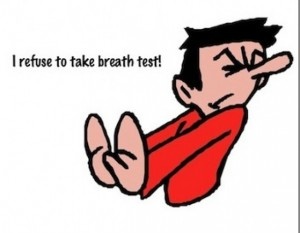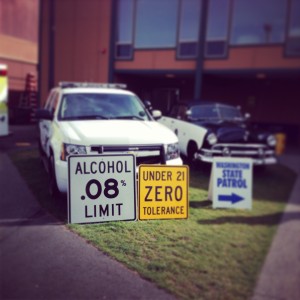Recently the Washington State Court of Appeals Division One expanded on what can be said in an opening statement involving a DUI breath test and to nobody’s surprise it is a very Prosecutor friendly ruling. Traditionally the opening statement by the Prosecution in a criminal DUI jury trial outlines the facts of their case, who and what their witnesses will testify to, and how they will prove the Defendant is guilty beyond a reasonable doubt. In my experience the Prosecutors were never allowed to tell the jury what the breath test reading was because it had not been admitted into evidence yet. Prosecutors would always try and argue they should be allowed to disclose it because it was evidence they reasonably believed would be admitted.
A Breath test can now be revealed in an opening statement
In all the years I have practiced criminal defense I can’t think of a time where a Judge allowed a Prosecutor to disclose the specific alcohol reading to the jury in opening statement. Well that is about to change thanks to a recent Court ruling by the Washington State Court of Appeals in City of Puyallup v. Spenser. In that case a Prosecutor mentioned the defendants breath test was a .11/.12 to the jury in a DUI trial. The Defense Attorney objected and argued for a mistrial. However the Court overruled the objection. The defendant was later convicted of a DUI. The defendant appealed to the Superior Court which reversed the conviction, however the Court of Appeals reversed that decision and here we are.
What happens now in DUI cases with a breath test
So what does that mean moving forward? It means Prosecutors can now tell the Jury what a breath test is in their opening statement. Now is it really a big deal if the breath test became admissible anyway. Maybe not, but that is not the point. It is a big deal because what if the breath test is later found to be inadmissible due to some foundational issue or the Prosecutor just screws up. What happens then? Since the Prosecutor was allowed to disclose this number in the opening statement the Jury is going to know there was a breath test, what that number was, and don’t think for a minute that will not creep into their back of their minds during deliberations. Even if a Judge tells them they are not to consider it, you cannot un-ring that bell, you cannot undue what they heard. And that is the problem with this ruling.
As a criminal DUI defense attorney in Seattle I have litigated well over a hundred jury trials. And in most cases the Prosecutors don’t screw up, and they are able to introduce the breath test ticket as evidence. However I have had cases where the Prosecutors did screw up and they were not allowed to introduce the breath test ticket. In those cases the jury never heard of my clients alcohol level because the Prosecutor was not allowed to disclose that in opening statement. The ruling in the Spesner case no longer affords defendants that benefit. And that is a shame.

 A few days ago I blogged about what happens if a person arrested for a DUI in Washington State takes the breath test at the police station. To follow up on that. I now answer the question what happens if you refuse to take the breath test following a DUI arrest. In my opinion as a DUI Attorney in Seattle some good will happen, and some bad will happen. So here you go.
A few days ago I blogged about what happens if a person arrested for a DUI in Washington State takes the breath test at the police station. To follow up on that. I now answer the question what happens if you refuse to take the breath test following a DUI arrest. In my opinion as a DUI Attorney in Seattle some good will happen, and some bad will happen. So here you go. One of the most common questions I get asked by anyone and everyone is what happens if I take the breath test if I get arrested for DUI. In fact I was at a great restaurant over the weekend (Brimmer & Heeltap in Ballard) and I started talking with the couple next to me. When they found out I was a Seattle DUI Attorney that was the first question they asked. So it got my thinking why not write a blog post about it. So here you go…
One of the most common questions I get asked by anyone and everyone is what happens if I take the breath test if I get arrested for DUI. In fact I was at a great restaurant over the weekend (Brimmer & Heeltap in Ballard) and I started talking with the couple next to me. When they found out I was a Seattle DUI Attorney that was the first question they asked. So it got my thinking why not write a blog post about it. So here you go…